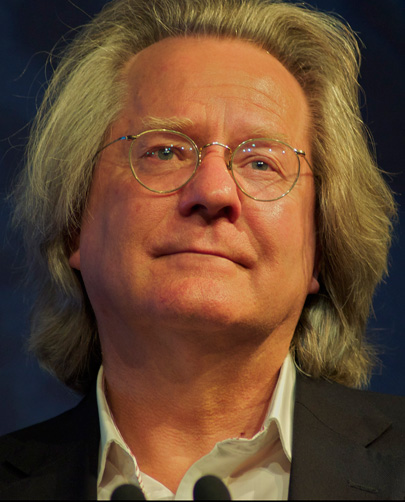The views expressed in our content reflect individual perspectives and do not represent the authoritative views of the Baha'i Faith.
This is Part 5 of World Unity and Climate Change :
The well-being of mankind, its peace and security, are unattainable unless and until its unity is firmly established. – Baha’u’llah, Gleanings from the Writings of Baha’u’llah, p. 286.
Baha’is believe that human well-being depends on unity.
Today, the world’s political operating system pivots around nationalism. We have two hundred nations on our planet, and those sovereign nations all have differing “national interests.” When those national interests collide, we get war, famine, oppression, death, destruction and runaway, intractable climate change. Why blame the core problem of climate change on energy policy, or industrialization, or modernization, or capitalism, or greed, or on the developed world or the developing world? The only fair and reasonable conclusion places the blame for climate change on nationalism — and the unrestricted, unregulated, autonomous ability of nation-states to befoul the world’s air. Without any constraints on their ability to pollute, we know from experience that nations will continue to privilege their economic and political interests over the interests of humanity.
In other words, our system of sovereign national governments no longer serves our world’s best interests. Every critical environmental issue we face requires transnational solutions.
The British philosopher A.C. Grayling describes nations as artificial constructs, “their boundaries drawn in the blood of past wars”. Albert Einstein said “Nationalism is an infantile disease… It is the measles of mankind.” And the philosopher and comic George Carlin said, in response to a “God Bless America” bumper sticker:
Listen, there are 200 countries in the world, do these people honestly think God is sitting around picking out his favorites? Why would he do that? Why would God have a favorite country? And why would it be America of all the countries? Because we have the most money? Because he likes our national anthem? Maybe it’s because he heard we have 18 delicious flavors of classic Rice-O-Ronie? It’s delusional thinking. If these people believe in God, they must have heard that God loves everyone, and he loves them equally. So why would these people ask God to do something that goes against his own teaching?
Baha’is believe that God has given us a new message of hope, love and unity in the revelation of Baha’u’llah, who called on the nations to unify for the benefit of all people. Instead of seeing those competing national interests as humanity’s last and final evolutionary and organizational step, the Baha’i Faith works toward:
…a world community in which the fury of a capricious and militant nationalism will have been transmuted into an abiding consciousness of world citizenship. – Shoghi Effendi, The World Order of Baha’u’llah, p. 40.
Baha’is believe that the time has come for a unification of the world’s countries into a democratic world government that subordinates national interests to the legitimate interests of all the world’s people.
Baha’is believe we simply cannot solve the new, world-encircling planetary environmental problems we face with old, doctrinaire and outmoded nation-based solutions.
Baha’is believe that humanity must transcend the limitations and boundaries of an obsolete and dysfunctional nationalism and, while we still can, unite the peoples of the world in one common endeavor.
Baha’is believe that the sole solution for an ailing planet lies in re-establishing the spiritual harmony and unity necessary for the earth’s nations to function as the federated states of a world commonwealth.
In 1992, when the world’s nations first gathered in Rio de Janeiro, Brazil for the United Nations Conference on Environment and Development, the Baha’i International Community presented its recommendations for inclusion in an Earth Charter — an international declaration of fundamental values and principles for building a just, sustainable, and peaceful global society in the 21st century. That Charter “seeks to inspire in all peoples a sense of global interdependence and shared responsibility for the well-being of the human family, the greater community of life, and future generations.”
Baha’is believe that these recommendations for inclusion in the Earth Charter represent humanity’s best hope for truly combating climate change, and for addressing every other global problem that hampers our continuing hope, health and happiness as human beings:
- The unrestrained exploitation of natural resources is merely a symptom of an overall sickness of the human spirit. Any solutions to the environment/development crisis must, therefore, be rooted in an approach which fosters spiritual balance and harmony within the individual, between individuals, and with the environment as a whole. Material development must serve not only the body, but the mind and spirit as well.
- The changes required to reorient the world toward a sustainable future imply degrees of sacrifice, social integration, selfless action, and unity of purpose rarely achieved in human history. These qualities have reached their highest degree of development through the power of religion. Therefore, the world’s religious communities have a major role to play in inspiring these qualities in their members, releasing latent capacities of the human spirit and empowering individuals to act on behalf of the planet, its peoples, and future generations.
- Nothing short of a world federal system, guided by universally agreed upon and enforceable laws, will allow nation states to manage cooperatively an increasingly interdependent and rapidly changing world, thereby ensuring peace and social and economic justice for all the world’s peoples. – Earth Charter, Baha’i International Community, p. 1.
Baha’is believe that the greatest contribution any man, woman or child can make to alleviating the crisis of climate change involves working to unite humanity into one global system.

















Comments
Sign in or create an account
Continue with Googleor